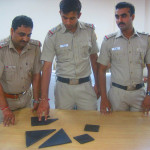February 2nd is an important day for all us Indians. It is the day when the Supreme Court of India will ‘rethink’ it’s 2013 judgement of criminalizing homosexuality, as per Section 377 of the Indian Penal Code. In 2013, the Supreme Court had overturned the Delhi High Court’s 2010 judgement of decriminalization of homosexuality, and said that it is a parliamentary matter, not a judicial one. This, many activists felt, was in contradiction to the Supreme Court’s role of protecting the fundamental rights of the citizens of India.
Now let us first try to understand what Section 377 is. It is essentially the section on ‘unnatural offences’, and says “Whoever voluntarily has carnal intercourse against the order of nature with any man, woman or animal shall be punished with imprisonment for life, or with imprisonment of either description for term which may extend to ten years, and shall also be liable to fine.”
Homosexuality, contrary to what many people think, is centuries old, and has been found in several instances across ancient Indian texts and mythology. As per government of India statistics of 2012, there are an estimated 2.5 million gay people in India. The actual number may be much more, as these are based on the people who have declared themselves as gay, and excludes those who are still in the closet for fear of discrimination. While in 2014, the Supreme Court recognized the transgenders as a ‘third gender’ in a landmark ruling, the case of homosexuals remains as vague as ever.


The LGBT movement in India has gained momentum in the past few years. There is more open discussion about it in the media, more depictions in mainstream cinema, television, music and writings. In 2012, the movie “I AM”, about homosexuality, was awarded a National Award. There are pride marches happening almost every year, in most of the major cities of the country, and these get prominent media coverage. Many organizations such as the Naaz Foundation, are pushing for equal rights for homosexuals, and say that more than a sexual or a cultural issue, it is a human rights issue, which needs to be addressed on an urgent basis.
Prominent equal rights activist Harrish Iyer recently said “People often ask me what I think will happen on February 2, but I think for the LGBT community there is no option but to hope positive. No one should be pushed to a situation where they the only option is to hope. But we hope that the Supreme Court will listen to our views and realises that using phrases like minuscule minority is not right.”
In our endeavour towards a gender just and a gender sensitive society, we at CSR hope that the honourable Supreme Court of India takes a wise decision tomorrow, and decriminalizes homosexuality because freedom of sexual orientation is a fundamental human right, which needs to be addressed and respected.
Discuss this article on Facebook




